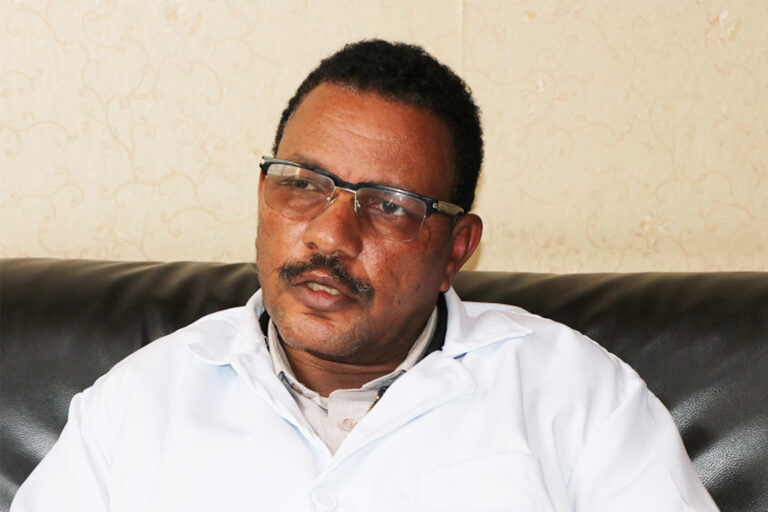By Dr. Yeshitila Hailu
Since the Coronavirus disease (COVID-19) arrived in Ethiopia in mid-March, there have been over 31,000 confirmed cases and 544 deaths according to data released by the Ethiopian Ministry of Health as of 17 August. Like other countries around the world, Ethiopia, Africa’s second most populous nation, is reeling from the effects of the pandemic on a fragile health system, while at the same time grappling with the very real threat of economic recession and its devastating consequences.
While the government has declared a state of emergency that has so far lasted five months, imposed movement restrictions, and enforced social distancing and wearing of face masks while out in public, the pandemic continues to hold the country in its grip. But even as we focus on finding and implementing more long-term solutions to stemming the spread of COVID-19, simpler interventions such as handwashing with soap and water must not be overlooked.
Research has shown that washing your hands with soap and water is one of the most effective ways of protecting yourself and others from infection. Given that we touch our faces every 2-5 minutes on average, potentially increasing the risk of infection every time we touch our eyes, noses or mouths, handwashing with soap or using alcohol-based hand sanitizer that contains at least 60% alcohol is a simple yet effective frontline defense against the coronavirus.
Despite its simplicity, handwashing remains out of reach for an estimated 3 billion people around the world who still do not have access to facilities with water and soap within their homes. In countries like Ethiopia, 60-80% of communicable diseases are caused by limited access to sanitation and hygiene services and safe water, a reality that makes it harder for the government to respond to the coronavirus pandemic effectively – and for disadvantaged communities to keep themselves safe using basic resources.
To complement government efforts to increase access to improved Water, Sanitation and Hygiene (WASH) through the One WASH National Programme, which broadly seeks to achieve better WASH outcomes in Ethiopia through robust policies and a multisectoral approach, Amref Health Africa has partnered with WASTE, a Dutch non-profit organisation, to promote proper handwashing and improved sanitation. The project, dubbed Financial Inclusion Improves Sanitation and Health (FINISH), primarily aims to increase demand for and supply of sanitation and hygiene facilities within communities by making them affordable.
To create demand among low income households, Amref uses innovative ways to persuade communities to prioritize sanitation by selling the benefits of improved latrine systems, including hygiene and disease prevention. This includes carrying out mass communication activities that weave in COVID-19 prevention messages to increase awareness, and engaging health workers to conduct door-to-door campaigns to explain the significance of improved sanitation. The health workers also facilitate visits to sanitation facilities to make a stronger case for their usage by allowing households to experience them.
Once demand is created, this unique model then seeks to address the financial barrier that prevents communities from investing in these facilities by leveraging partnerships with financial institutions to offer affordable loans, encouraging households to pool their resources in order to access loans that average 364 USD per latrine. These funds are paid directly to the local contractors and masons, who Amref is collaborating with to develop affordable sanitation options that work within the local context.
Since the launch of the FINISH project in 2018, close to 300 sanitation facilities have been constructed in 5 districts of Oromia and Amhara regions, and 126,000 more are planned over the next 5 years. As a result, there has been significant improvement in handwashing practices, more community-led initiatives to construct latrine systems and increased willingness to pay for improved WASH facilities.
To build on these successes, Amref Ethiopia is constructing handwashing facilities in several towns and providing sustainable water supply to ensure proper hand washing – a critical intervention against COVID-19. This is being supplemented by the development of a mobile-based learning tool for health extension workers that focuses on providing accurate COVID 19 information and surveillance, and which integrates COVID-19 prevention messaging into the corresponding awareness creation sessions in order to make handwashing not only about hygiene, but about potentially saving lives.
It’s a relatively simple yet holistic approach to a complex challenge, but one whose success will be dependent on deeper community engagement and sustained multisectoral cooperation to plug the $US 2.8 million funding gap that threatens to reverse gains, which will lead to greater investment in affordable, accessible WASH facilities especially during the COVID-19 pandemic. It is crucial that now, perhaps more than ever before, water, soap and basic sanitation – core pillars of infection prevention and control – are made available especially to vulnerable communities, because until we find a viable vaccine or treatment, improved WASH practices remain the first line of defense against the COVID-19 pandemic.
Dr. Yeshitila Hailu is Programmes Director at Amref Health Africa (Ethiopia)





